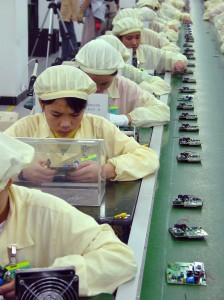October 9, 2012
scaling inefficiencies
 Last week I attended an amazing reading and film series group that felt more like a graduate seminar than a meetup. Cáfe de Cleyre has been gathering for 3+ hours weekly, for the past 3 months, and exploring the theme of Direct Action in theory and practice. I attended their ninth gathering where the the group explored mental health as direct action. They screened Crooked Beauty and read excerpts of Mindful Occupation and other Icarus Project publications. The topic was organized independently of anyone directly involved with the Mindful Occupation project, and this was a refreshing reminder of the power of media. I learned that the CdC is run by two primary facilitators, who keep the operation running, and each week’s topic is facilitated by two more people who volunteer to run that week’s conversation. The night I joined, over 25 people attended, and I was very impressed with participant’s commitment and the level of discourse.
Last week I attended an amazing reading and film series group that felt more like a graduate seminar than a meetup. Cáfe de Cleyre has been gathering for 3+ hours weekly, for the past 3 months, and exploring the theme of Direct Action in theory and practice. I attended their ninth gathering where the the group explored mental health as direct action. They screened Crooked Beauty and read excerpts of Mindful Occupation and other Icarus Project publications. The topic was organized independently of anyone directly involved with the Mindful Occupation project, and this was a refreshing reminder of the power of media. I learned that the CdC is run by two primary facilitators, who keep the operation running, and each week’s topic is facilitated by two more people who volunteer to run that week’s conversation. The night I joined, over 25 people attended, and I was very impressed with participant’s commitment and the level of discourse.
The evening’s discussion was inspirational, but in this post I want to focus on the group’s format. On the surface, Cafe de Cleyre looks alot like a traditional reading group. However, as I was reflecting on the organizing involved to bring this many people together—on an ad-hoc basis—I realized that digital communications play a large role in making assemblies like these possible. As I understand, group attendance varies significantly, week to week, as participants join for the discussions they are interested in. In years past, it was possible to organize a reading group around a particular theme, but the ad-hoc, on-demand spontaneity of this series would be much harder to maintain prior to social networking. For sure, it happened, but the internet has greatly facilitated this.
I bring up this point in direct relation to the conversations swirling in educational technology around MOOCs (Massive Open Online Courses). Columbia University is actively experimenting in this area now, and there are great debates of what MOOCs are, and what, if any, value do they offer. While access is not an end if of itself, I agree with Anya Kamenetz that, access to knowledge is generally a good thing. To be sure, granting more dominance to already powerful voices threatens diversity, but that is one of the reasons that the evaluation of MOOCs needs to be tempered by genre.
Many of the conversations about MOOCs also stress the efficiencies of scaling. As a programmer, ‘efficiency’ is often my euphemism for ‘lazy’ (in the best sense), but it is important to point out that scaling isn’t the only way we could decide to leverage technology for learning.
I am reminded of another extreme example of this — May First/People link has recently launched a mentored training program called the People of Color Techie Training Program “for activists of color to become professional-level, politically progressive and movement involved technologists”. May First is using communications technology to connect remotely with geographically dispersed learners, but in just about every sense, they are using technology to scale down – supporting 1-on-1 direct encounters, instead of the mass broadcast of lectures to 180k students.
Not all progress is driven by maximizing efficiency, and some of the most interesting educational moments happen at the smallest scales.
 Filed by Jonah at 1:22 pm under education,epistemology,water
Filed by Jonah at 1:22 pm under education,epistemology,water
No Comments

